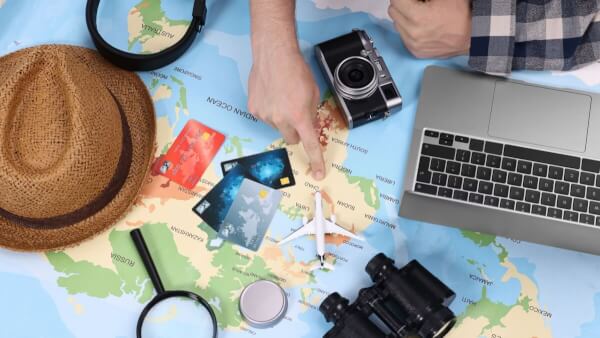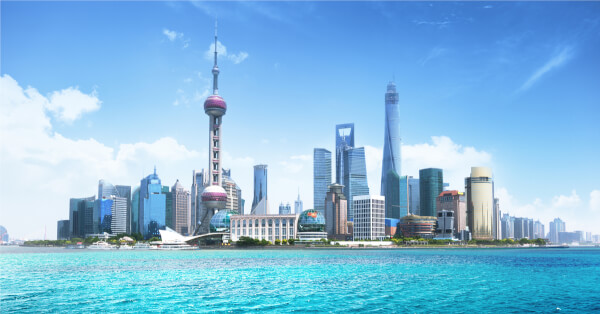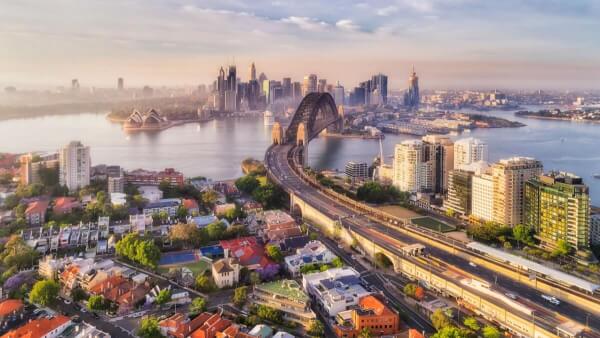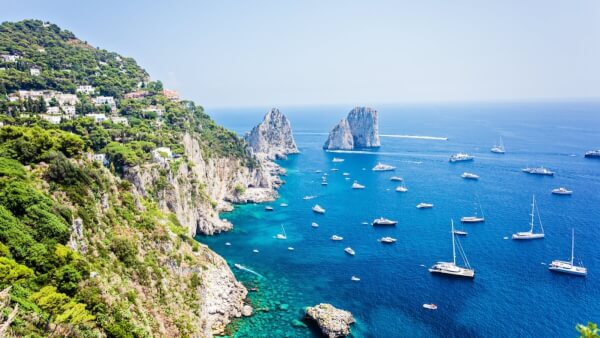Guide to Visa-Free Travel for Australian Passport Holders: Countries, Requirements, Policies (2024 Guide)
Discover the destinations where Australians can travel without a visa in our guide to visa-free countries, visa on arrival options, and ETA.

New Zealand is a popular destination for travellers - and for good reason. Explore the pristine countryside, dive into the local culture, and live it up in the welcoming urban hubs. From exhilarating adventure activities to cutting edge modern food and wine, you’ll find what you’re looking for in New Zealand.
This guide is here to help you get started in planning your trip. We’ll cover visas, internal travel, accommodation and some popular sights. And to make sure you get the most from your visit, we’ll also look at managing your money while abroad using the Wise borderless account and linked Mastercard. Let’s dive right in.
Every trip is unique, and there’s no substitute for your own research when it comes to making the most of your time abroad. For example, you’ll need to look into practical things such as the best way to get from the airport to your accommodation, and the likely weather in your destination. Depending on the type of travel you’re planning, you’ll also want to check out specifics, such as driving standards and road rules if you’re planning on hiring a car, or local hazards to think about if you’re off trekking.
Take a look at the official New Zealand tourism website for detailed travel information, route ideas and more¹.
For up to date information including advice on safety and visas, you can also check out the New Zealand page on the Smart Traveller website². Smart Traveller is an Australian government supported resource to help travellers before, during and after trips overseas, and will be a good starting point for your research, no matter where you intend to travel.
No matter where you’re headed, travel isn’t cheap. It’s important to be aware of the fees and charges you might face when spending overseas - so you can manage your money easily, and cut your costs along the way.
Exchange rates change all the time, which can make it hard to keep track of whether or not you’re getting a good deal when you switch your currency. The rate you need to know is the mid-market exchange rate - the one banks use when buying currency themselves.
Get an online currency converter or app, and use this to compare the rates you’re given when exchanging currency against the mid-market exchange rate. It’s common to find there’s a markup added to this rate - but there are ways to avoid paying this extra margin, including using the Wise borderless account and card. More on that later.
As we mention above, you might find an extra cost built into the exchange rate you’re given - but you’ll also want to be vigilant when using ATMs and sending international payments. Check your account and card terms to find out if your own bank will charge you to spend or make cash withdrawals overseas. These may be flat fees, a percentage added to each transaction - or both - and can quickly mount up.
Some ATM operators add their own fees, too - so watch the screen carefully before you confirm a transaction.
A final headache to avoid when using a credit or debit card abroad - DCC. This is where you’re asked if you want to pay in your home currency instead of the local one when you travel. Always opt to pay in the local currency to get the best exchange rate and lowest fees.
One good way to manage your money as you travel, is to get a Wise borderless account to hold, send and spend your foreign currency. You can keep dozens of currencies, and spend easily using the Wise borderless Mastercard, with no foreign transaction fees. All currency conversion is done using the mid-market exchange rate and there are no hidden fees.
See if you can save when you travel to New Zealand, with Wise.
At the time of research, the Australian government advises visitors to New Zealand exercise normal safety precautions. Crime levels are similar to at home - don’t leave valuables in vehicles, and be aware of your surroundings at all times. You’ll also need to take precautions if you’re hiking or in remote areas due to the risks of extreme weather, and watch for advice if there is a heightened risk of issues with active volcanos in your area, or if there have been recent earthquakes.
If you find yourself in trouble when overseas, the Australian consular service may be able to offer support. To find out more about what they can - and can’t - do, check out the information, fact sheets and contact information available on the Smart Traveller website³.
Most Australian citizens don’t need a visa to enter New Zealand. If you’re a permanent resident you might need to get a New Zealand Electronic Travel Authority (NZeTA) - get all the details online at the New Zealand immigration department website⁴.
New Zealand offers a broad range of accommodation choices to suit every budget. Towns will have motels, hotels, hostels and pubs, while more rural areas are typically covered by camping, homestay, farmstay and bed and breakfast (B&B) options.
The Rough Guide to New Zealand suggests you budget around the following per night(prices in USD):⁵
You’ll be able to get about easily enough using the public busses if you’re in towns and cities in New Zealand. However, for many travellers the point of a trip is to get out into the more rural areas and see the country at large.
If you’re planning on covering larger distances while you’re in New Zealand you’ll likely need to fly or take intercity busses. Train travel isn’t such a common option - although many people staying for a longer time choose to buy or hire a car or campervan. This gives freedom and flexibility - and if you sell the vehicle at the end of your trip, need not cost the earth⁶.
You can drive in New Zealand for up to 12 months using your Australian license - if you’re staying longer you’ll need to switch to a local license.
The New Zealand tourist board offers advice on route planning and other ways to make the most of your trip. Do your own research to find the right combination of options for your taste - here are a few ideas to whet your appetite.
Here are a few more things to think about before you head off on your trip of a lifetime:
If you’re headed off to New Zealand you’re in for a treat. No matter whether you’re looking for a fun filled city break or a quiet retreat into nature, you’ll have the time of your life.
Put in some time upfront to research so you can find the best options for you - and don’t forget to think about how to manage your money to cut costs. Getting a Wise borderless account and linked Mastercard can be a smart way to avoid excessive bank and currency conversion fees - leaving you more to spend on yourself.
Sources:
All sources accurate as of 13 Jan 2020
*Please see terms of use and product availability for your region or visit Wise fees and pricing for the most up to date pricing and fee information.
This publication is provided for general information purposes and does not constitute legal, tax or other professional advice from Wise Payments Limited or its subsidiaries and its affiliates, and it is not intended as a substitute for obtaining advice from a financial advisor or any other professional.
We make no representations, warranties or guarantees, whether expressed or implied, that the content in the publication is accurate, complete or up to date.

Discover the destinations where Australians can travel without a visa in our guide to visa-free countries, visa on arrival options, and ETA.

Discover China's visa-free travel policies: We cover the eligible countries, requirements, and transit options in our guide to travel to China without a visa.

Discover Australia's visa-free travel policies: we cover the eligible countries and requirements in our guide to hassle-free travel to Australia.

Review of the best Australian cards offering airport lounge access: credit cards, premium debit cards, and travel cards with lounge benefits.

Travelling from Australia to the Philippines? Let’s fill you in on the travel requirements, touristy and non-touristy spots and other need to knows in our guide

Want to import your boat from the US to Australia? In this quick guide, we’ll share the costs, timeframes and other need to knows